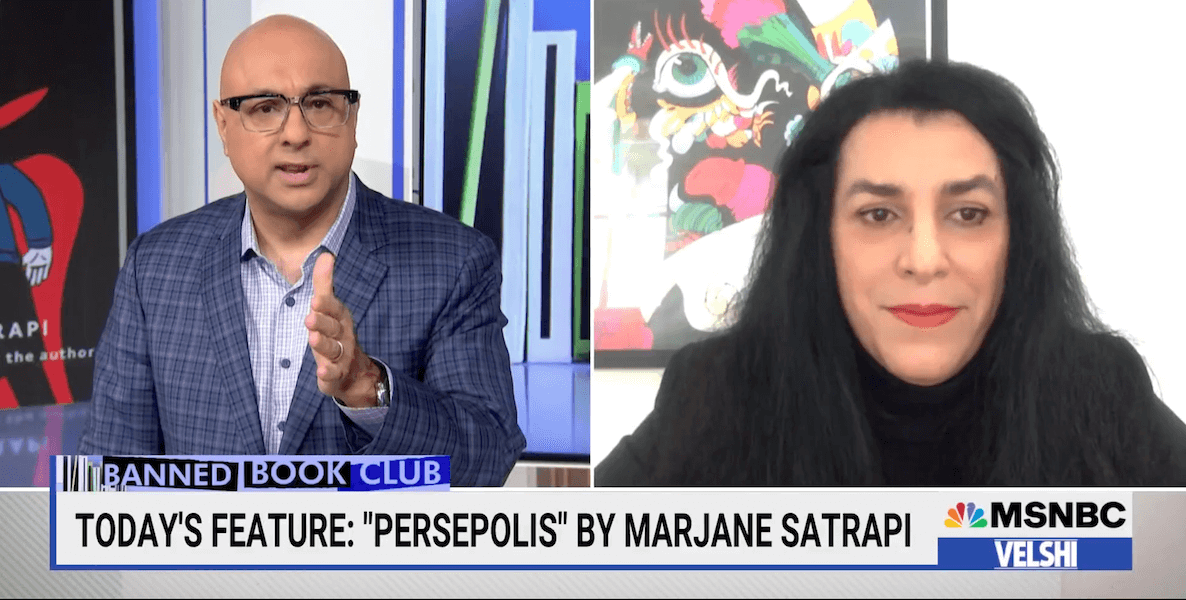On the 20th anniversary of her iconic graphic novel Persepolis, Iranian-born author, artist and director Marjane Satrapi joins Ali Velshi to discuss what the book meant then and now.
“How the Iranian regime acts toward people has not changed since I wrote Persepolis,” she says, “It is the reaction of people that has changed.” A new generation of Iranians, un-traumatized by war, “want the change of the regime, and they’re not scared anymore,” says Satrapi. Also, they, men and women, are “really not into patriarchy; they’re really not sexist. So, this is why I call this the first feminist revolution that is actually supported by men … We are not going to succeed if we are not all united.”
Satrapi believes “The thing that makes change in society is the culture of society. The Iranian culture, especially among the youth, is extremely democratic, so when you achieve that, that is 90 percent of the work. The rest of politics — 10 percent. And it will succeed.”
There’s an advantage to living in a country like Iran, she adds. “In Iran, we know we are not free. So, in a way, it makes it easier, because we know what we are fighting for.” Whereas democracy can breed complacency. “A fascist regime is really bad. But nothing is worse than a fascist democracy, because it gives you the illusion that it is chosen, and it’s freedom, but people are brainwashed.”
In school, “They tried to brainwash us, but if you don’t want to be brainwashed, they you’re not brainwashed. This is why culture is so important … from the moment you learn to think for yourself and make your opinion by yourself, not because someone repeatedly tells you something.”
Thinking for yourself is an act of maturity — but also rebellion. “This,” says Satrapi, “is why this banned book is such a stupid idea: If eventually you want people to read a book … ” Velshi continues, “Nothing better than being the focus of a banned book club, because it shows up in bookstores, and everybody wants to read it.”
Listen to Ali’s interview with Marjane Satrapi:
Watch Velshi and Satrapi:
Velshi on banned books on MSNBC:
![]() MORE ON BANNED BOOKS FROM THE CITIZEN
MORE ON BANNED BOOKS FROM THE CITIZEN



